Buster Keaton
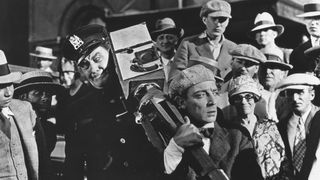
The Actor: Born into a vaudeville family, Joseph Keaton had been performing on stage since he was a child, before he found fame in silent comedy, initially as co-star to Fatty Arbuckle.
The Director: With producers quick to realise that Keaton's ideas were better than anyone else's, the star was given his own production unit during the 1920s.
Acting Vs Directing: While Keaton shares credit of many of his classics with co-directors, there's no denying that it took the man himself to bring out the best (ie most audacious stunts) in the performer. There's a noticeable drop in quality when Keaton stops directing.
Elia Kazan
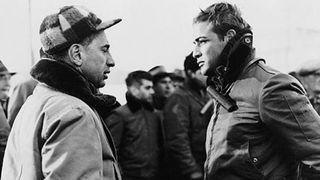
The Actor: Kazan helped to change American theatre in the 1930s as a leading player in Lee Strasberg's Group Theater, with acclaimed turns in the likes of Clifford Odets' Waiting For Lefty .
The Director: Kazan quickly found a preference for directing and handled the first productions of Death Of A Salesman and A Streetcar Named Desire . By then, he had a growing presence in Hollywood, winning his first Oscar for Gentlemen's Agreement .
Acting Vs Directing: No contest - we have to rely on those who were there to know if Kazan could act, but his achievements as a director (notably A Streetcar Named Desire and On The Waterfront ) are there to see. His biggest contribution, through, was to launch the careers of a new generation of actors, notably Marlon Brando.
George Clooney
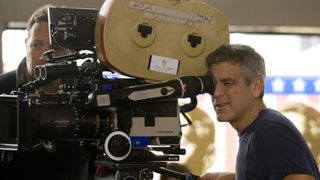
The Actor: TV heart-throb turned movie superstar, Clooney atoned for Batman And Robin by embarking on a mission to work with Hollywood's hottest directors (Soderbergh, Russell, Reitman, the Coens).
The Director: His growing confidence as a producer made this inevitable, but Clooney has revealed himself to be a class act behind the camera, making intelligent liberal films like Good Night And Good Luck .
Acting Vs Directing: To the public, he'll always be an actor first - but bear in mind, he's the only person in history to be Oscar nominated in six categories: Leading Actor, Supporting Actor, Director, Producer, Original Screenplay, Adapted Screenplay.
Ron Howard
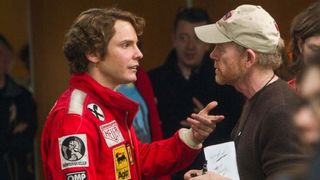
The Actor: The child star of The Andy Griffith Show became a teen icon in American Graffiti and Happy Days - a symbol of old-fashioned virtue and decency.
The Director: Howard made his first film - Grand Theft Auto - for Roger Corman, but his heart belonged to the mainstream, achieving near-total box office domination from Splash onwards.
Acting Vs Directing: The humanity of Howard's acting goes double for his directing, to the point where he's often unfairly underrated. Nowadays, he has almost totally abandoned acting - almost, of course, but for Arrested Development .
Rob Reiner
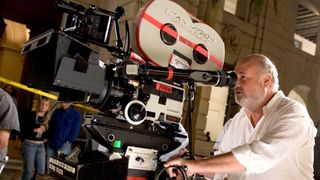
The Actor: The only person whose dad is also on this list, Carl Reiner's son got his big break on TV playing "Meathead," liberal scourge of father-in-law Archie Bunker in All In The Family .
The Director: The apple doesn't fall far from the tree, and Reiner Jr followed his dad into directing comedy with the classic This Is Spinal Tap and The Sure Thing .
Acting Vs Directing: It's hard to think of Reiner as an actor nowadays, because of his success as a director - his first seven films, up to A Few Good Men , represent one of the longest unbroken runs of great films in modern Hollywood, even if he's never matched it since.
John Cassavetes
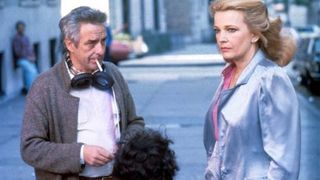
The Actor: Method actor who alternated stage work with roles on TV and film throughout the 1950s and 1960s, eventually becoming a star on the back of The Dirty Dozen and Rosemary's Baby .
The Director: Cassavetes' debut, Shadows , was a prototype for independent cinema, but he really hit his stride from 1968's Faces onwards, using his Hollywood paychecks to fund innovative low-budget dramas like A Woman Under The Influence .
Acting Vs Directing: Cassavetes could've been a bigger star but his passion for performance led him down a more leftfield path; today, he is revered as one of cinema's greatest directors of actors.
Woody Allen
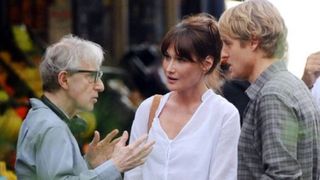
The Actor: Allen's self-penned sketches and stand-up brought him to the attention of television, where he perfected his persona as a neurotic, nebbish intellectual before switching to movies in What's New Pussycat? and Casino Royale .
The Director: Allen's disappointment over the handling of his screenplay for Pussycat made him vow to turn director. Great decision - he pioneered new forms for screen comedy in the likes of Annie Hall and Manhattan .
Acting Vs Directing: While inseparable in the public perception, it has to be said Allen has greater range as a director - especially his passion for Bergman-esque ensemble drama - than as an actor, where he's yet to move on from the character established during his early career.
Orson Welles
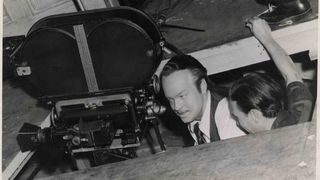
The Actor: Wunderkind who began his stage career as a teenager in Dublin before reaching New York and finding his voice as a star on radio.
The Director: Welles began directing at a young age and it was in his dual capacity as actor/director that he was lured to Hollywood with the promise of complete artistic control. He got it - once, on Citizen Kane - and then his troubles began.
Acting Vs Directing: Welles saw himself as first and foremost a director but his difficulty in finding funding for his films meant that, in the public eye, he was best known as an actor - in everything from The Third Man to Transformers: The Movie .
Charlie Chaplin
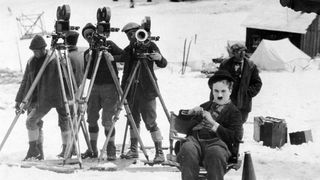
The Actor: London-born stage comedian who hit the big-time when he moved to Hollywood and signed up for Keystone Studios, quickly becoming the star attraction after creating the character of 'the Tramp.'
The Director: Nobody knew the Tramp like Chaplin, so he persuaded Keystone boss Mack Sennett to let him direct himself. Chaplin set the standard for screen comedy and then expanded its boundaries by adding dramatic elements in The Kid, by which time he'd become co-owner of his own studio, United Artists.
Acting Vs Directing: Chaplin's heart-on-sleeve style meant that the Tramp expressed all of his creator's thoughts and feelings. With the exception of The Great Dictator , Chaplin's non-Tramp directorial efforts tend to be less critically regarded or commercially successful.
Clint Eastwood
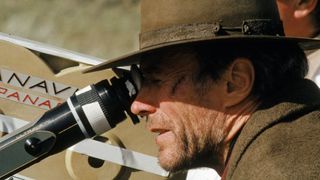
The Actor: TV cowboy who took a working holiday in Europe with Sergio Leone when bigger names bailed and created a new kind of action hero - amoral, laconic and ice-cool - and then did it all over again in Hollywood with Dirty Harry .
The Director: A student of regular collaborator Don Siegel, Eastwood adopted a 'less is more' approach to directing, hopping genres with abandon but maturing until he was ready to become the elder statesman who made Unforgiven and Mystic River .
Acting Vs Directing: With his steadfast, classical style Eastwood has become as monumental a filmmaker as he was an actor, and a magnet for Oscar acclaim. Well, apart from that weird period when he was hanging out with an orang-utan.
